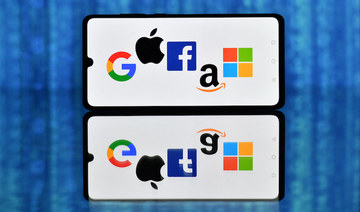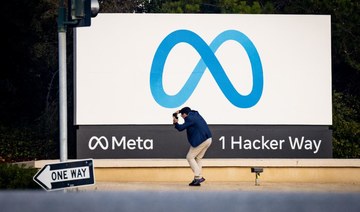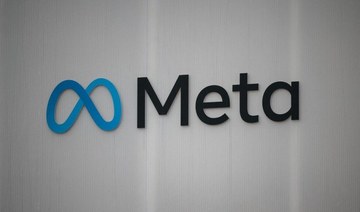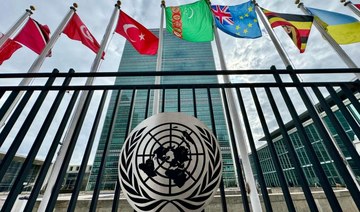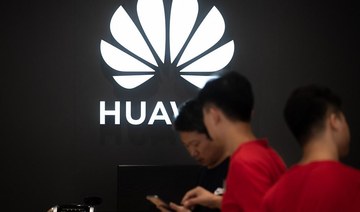WASHINGTON: The United States and European Union plan to take a more unified approach to limit the growing market power of Big Tech companies, according to a draft memo seen by Reuters.
The move will be among announcements on tech, climate, trade and supply chains likely to be made at a US-EU Trade & Technology Council meeting on Sept. 29 in Pittsburgh.
With the US and Europe trying to restrain the growing power of American tech giants such as Alphabet’s Google , Facebook, Apple and Amazonom Inc. , such cooperation has become critically important for regulators on both sides of the Atlantic — and would make it harder for the US tech industry to fight new rules.
This month, the White House announced that the council would meet for the first time on Sept. 29 in Pittsburgh. US Secretary of State Antony Blinken, Commerce Secretary Gina Raimondo, US Trade Representative Katherine Tai and the European Union’s trade chief Valdis Dombrovskis are scheduled to attend along with European Commissioner for Competition Margrethe Vestager.
The White House, which is coordinating with different agencies on the meeting, declined to comment on the memo. Apple, Facebook, Amazon and Google did not immediately respond to requests for comment.
The council has 10 working groups for areas such as strengthening trade, economic relations and shared democratic values, according to the draft memo.
The group focused on tech company regulation will “exchange information on our respective approaches to technology platform governance, seeking convergence where feasible,” the memo says.
There are many examples where the two continents could cooperate more. Google, which faces several antitrust lawsuits in the US related to its advertising business, also faces a wide-ranging investigation related to ad technology in the EU.
“We have identified common issues of concern around gatekeeper power by major platforms and the responsibility of online intermediaries,” the memo says, adding that more can be done to combat misinformation.
“This includes in particular the responsibility of online intermediaries to safeguard democratic processes from the impact of their business activities. Areas of common ground... include content moderation and fair competition,” the memo said.
The group will tackle areas such as hate speech, algorithmic amplification and data access for researchers, the memo says.
The council’s climate and clean tech group will work to identify trade and investment opportunities in low- and zero-carbon technologies and products, according to the memo. The supply chain working group will focus on securing supplies of pharmaceuticals, critical minerals and clean energy.
The council will also work to address the shortage of semiconductor chips in a way that is “balanced and of equal interest for both parties” and will avoid a “subsidy race.”
On Wednesday, Reuters reported that European Union ambassadors have postponed discussions to prepare for the meeting in protest of Washington’s submarine agreement with Australia at France’s expense.
A spokesperson for the White House’s National Security Council said preparations for the meeting were continuing.
Several tech trade groups in Washington said the industry does not want the European approach to digital regulation to be adopted in the United States.
“The risk is that the European side will press the United States to harmonize its regulations with the EU by taking a precautionary approach... which would skewer America’s leading tech companies,” said Robert Atkinson, president of the Information Technology & Innovation Foundation, a tech think tank based in Washington.
“We shouldn’t do that, nor do we need to. Our interests are broadly aligned and compatible, particularly when it comes to China,” Atkinson said.
Big Tech targeted by US and EU in draft memo ahead of tech and trade meeting
https://arab.news/9yvna
Big Tech targeted by US and EU in draft memo ahead of tech and trade meeting
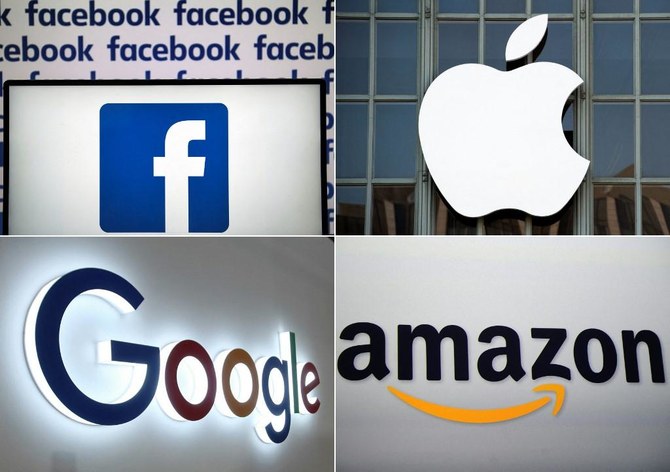
- The US and the EU plan to take a more unified approach to limit the growing market power of Big Tech companies
Meta ‘temporarily’ closes Threads network in Turkiye
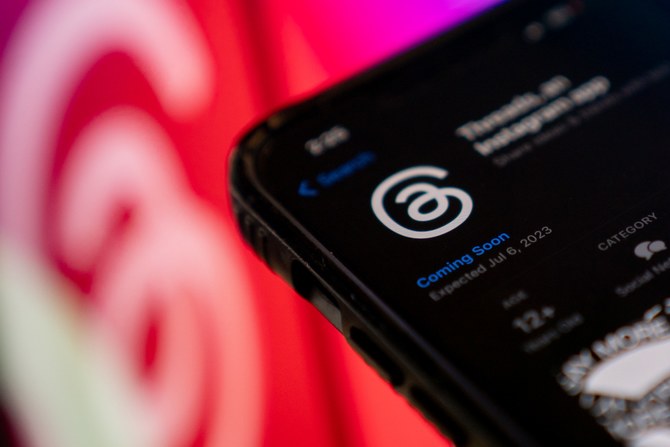
- Decision was taken to comply with injunction prohibiting data sharing with Instagram
- Ruling do not imlact Meta’s other services like Facebook, Instagram and WhatsApp
ISTANBUL: Facebook owner Meta said Monday it would “temporarily” shut down its Threads short-messaging service in Turkiye after an order from Ankara’s competition watchdog over data-sharing.
The interim ruling from the Turkish Competition Authority (TCA) has “no impact” for Meta’s other services like Facebook, Instagram and WhatsApp in Turkiye, the company said in a statement posted to its website.
“We disagree with the interim order, we believe we are in compliance with all Turkish legal requirements, and we will appeal,” Meta said — although it had “no choice but to temporarily shut down Threads” in Turkiye.
Meta launched Threads last year as a competitor to X (formerly Twitter), with boss Mark Zuckerberg saying in February the service had 130 million monthly users worldwide.
It was available in Turkiye from the start, while European Union users had to wait months for Meta to come up with a version adapted to strict data protection and competition laws.
In its March finding, the TCA had said Meta’s combination of user data from Instagram with people’s Threads profiles “will lead to irreparable harms.”
Given its vast user base, data collection and financial resources, “Meta’s practices in the market constitute a barrier to entry” for prospective competitors, the authority added.
Meta said it would allow existing Threads users to delete or deactivate their profiles ahead of the April 29 cut-off, with a chance of reactivating them should the ruling be overturned.
British TV presenter under fire for ‘Islamophobic’ tweet in aftermath of Sydney mall attack

- Critics say Rachel Riley should be sacked after she draws parallel between calls for Palestinian intifada and unrelated attack in Australia that left 6 people dead
- The ‘Countdown’ star later clarifies her comments and says she apologizes if her message was ‘misunderstood’
LONDON: British TV presenter Rachel Riley has responded to criticisms she received after posting a message on social media platform X in which she appeared to link a stabbing rampage at a Sydney shopping mall on Saturday, which left six people dead, with ongoing protests calling for a Palestinian “intifada,” or uprising.
The celebrity, best known for appearing on the Channel 4 game shows “Countdown” and “8 out of 10 Cats Does Countdown” said she apologized if her words had been “misunderstood.”
In a message posted soon after the attacks, Riley, whose mother is Jewish, wrote: “For six months now, people have been out on our streets proudly calling for the ‘Intifada Revolution’. If you want to know what ‘Globalised Intifada’ looks like, see the Sydney Mall.”
She immediately faced a backlash, including accusations of racism and Islamophobia and calls for her to be sacked by Channel 4.
Do not let Rachel Riley get away with it.
— Bushra Shaikh (@Bushra1Shaikh) April 14, 2024
Her words: "If you want to know what ‘Globalise the Intifada’ looks like, see the Sydney Mall."
"Sydney mall, multiple times over is what they’ve been proudly calling for."
She is full of it and knows exactly what she meant. I hope… https://t.co/iLBwHxnGby
In response, she posted a message on Sunday in which she said her tweet was not intended to link the attack in Sydney to Islamic extremism, but rather to question the continuing tolerance for protests in London and around the world calling for “intifada,” which she equates with “violence on our streets.”
She wrote: “Sadly, the type of attack seen in Sydney yesterday is exactly the kind of violence the previous intifada involved and I hope to avoid in future, but in my opinion ignoring the problem won’t make it go away.
“Attacks on Jews have recently become repackaged as ‘resistance’ in some circles, and we should in one voice condemn all acts of violence, whoever the perpetrators and whoever the victims.
“I am sorry if this message was misunderstood, that was not my intention.”
Despite her clarification, she continued to face criticism online, including accusations that her response was “insufficient” and she was engaging in “self-centered self-victimization” in an attempt to evade responsibility.
Honestly, everyone has had enough @Channel4. This is not an apology. It is self-centred, self victimisation to get away from addressing her islamophobia. She's posts diagusting, racist content and uses her identity to escape responsibility, this isn't good enough. https://t.co/u1dCJ2vkzC
— lachimalola⁷ (@Drrrivvveee) April 15, 2024
On Saturday, Joel Cauchi attacked a number of people, mostly women, at the Westfield Bondi Junction mall killing five women and a man. Several others, including a baby girl, were injured before Cauchi was shot dead by police. Australian authorities have said the attack was not related to terrorism and most likely linked to the attacker’s mental health issues.
Lebanese newspaper introduces ‘AI President’ in effort to break political deadlock

- Artificial intelligence tool’s ‘deep understanding’ of country equips it to address issues effectively, AnNahar newspaper says
- Lebanon has been without a president for more than two years
LONDON: A Lebanese newspaper has launched what it claims is the world’s first artificial intelligence tool designed to assume presidential duties for a nation, in an attempt to break the long-standing deadlock over who should assume the country’s presidency.
Arabic-language daily AnNahar said the program, which it has called “AI President,” has been trained on an archive of 90 years of “impartial journalism” from its pages. The program analyzes historical data and current events to provide answers to political, legal, and governmental questions.
With its “deep understanding” of Lebanon’s history, “AI President” aims to provide an “unbiased perspective” on the country’s current challenges.
The launch was announced in a live broadcast by Nayla Tueni, AnNahar’s editor-in-chief, who conducted an interview with the software regarding Lebanon’s current issues and potential solutions to them.
Lebanon is facing a number of long-running socio-economic crises, with over 80 percent of the population now reported to be living in poverty.
The country has been without a president for more than two years, despite 13 unsuccessful attempts by the Lebanese parliament to elect one.
Tueni hopes “AI President” will help break the political stalemate and restore confidence in the system.
“We refuse to sit back and allow things to go on as they have. To not have a president for this long is unacceptable and has impacted the country negatively,” Tueni said. “If the parliament will not do its job to elect a president, then the people will bring Lebanon a president.”
“AI President” will be accessible through the website OurPresident.ai to answer questions on Lebanese politics.
Republican hardliners blame Biden administration after Huawei unveils laptop with new Intel AI chip
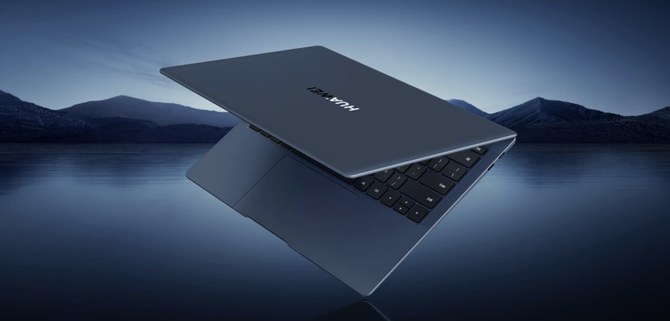
- A special license issued by the Trump administration has allowed Intel to ship central processors to Huawei for use in laptops since 2020
- In August, Huawei unveiled a new phone powered by a sophisticated chip manufactured by sanctioned Chinese chipmaker SMIC
WASHINGTON: Republican US lawmakers on Friday criticized the Biden administration after sanctioned Chinese telecoms equipment giant Huawei unveiled a laptop this week powered by an Intel AI chip.
The United States placed Huawei on a trade restriction list in 2019 for violating Iran sanctions, part of a broader effort to hobble Beijing’s technological advances. Placement on the list means the company’s suppliers have to seek a special, difficult-to-obtain license before shipping to it.
One such license, issued by the Trump administration, has allowed Intel to ship central processors to Huawei for use in laptops since 2020. China hard-liners had urged the Biden administration to revoke that license, but many grudgingly accepted that it would expire later this year and not be renewed.
Huawei’s unveiling Thursday of its first AI-enabled laptop, the MateBook X Pro powered by Intel’s new Core Ultra 9 processor, shocked and angered them, because it suggested to them that the Commerce Department had approved shipments of the new chip to Huawei.
“One of the greatest mysteries in Washington, DC is why the Department of Commerce continues to allow US technology to be shipped to Huawei” Republican Congressman Michael Gallagher, who chairs the House of Representatives select committee on China, said in a statement to Reuters.
A source familiar with the matter said the chips were shipped under a preexisting license. They are not covered by recent broad-cased restrictions on AI chip shipments to China, the source and another person said.
The Commerce Department and Intel declined to comment. Huawei did not immediately respond to requests for comment.
The reaction is a sign of growing pressure on the Biden administration to do more to thwart Huawei’s rise, nearly five years after it was added to a trade restriction list.
In August, it shocked the world with a new phone powered by a sophisticated chip manufactured by sanctioned Chinese chipmaker SMIC, becoming a symbol of China’s technological resurgence despite Washington’s ongoing efforts to cripple its capacity to produce advanced semiconductors.
At a Senate subcommittee hearing this week, Kevin Kurland, an export enforcement official, said Washington’s restrictions on Huawei have had a “significant impact” on it access to US technology. He also stressed that the goal was not necessarily to stop Huawei from growing but to keep it from misusing US technology for “malign activities.”
But the remarks did little to stem frustration among Republican China hawks following the news about Huawei’s new laptop.
“These approvals must stop,” Republican congressman Michael McCaul said in a statement to Reuters. “Two years ago, I was told licenses to Huawei would stop. Today, it doesn’t seem as though the policy has changed.”
Three Palestinian journalists injured in Israeli strike on Gaza’s Nuseirat camp

- The 3 reporters were taken to Shohada Al-Aqsa Hospital in Deir Al-Balah
- Journalist Sami Shehada lost his leg in the attack
GAZA: Three Palestinian journalists were injured in an Israeli airstrike on the Nuseirat refugee camp in Gaza on Friday.
Sami Shehada and Sami Barhoum were covering the events for the TRT Arabic TV channel, while Ahmad Harb was on duty for Al Arabiya News Channel at the time of the incident.
All three journalists were first taken to Al-Awda Hospital, a small facility in the north of the enclave, but later transferred to Shohada Al-Aqsa Hospital in Deir Al-Balah in the central Gaza Strip.
Shehada lost a leg in the attack, which reportedly directly targeted the media team.
“(We) were in a (relatively) safe spot, wearing our press armor and helmets,” Shehada told Arab News. “Even the car I arrived in was labeled ‘TV,’ and I’m a civilian and a journalist — they targeted us.”
Since Oct. 7, at least 122 journalists have been killed by Israeli strikes, according to UN figures, and many more have been injured.
UN experts said in February that they were “alarmed at the extraordinarily high numbers of journalists and media workers who have been killed, attacked, injured and detained in the Occupied Palestinian Territory, particularly in Gaza, in recent months, blatantly disregarding international law. We condemn all killings, threats and attacks on journalists and call on all parties to the conflict to protect them.”



